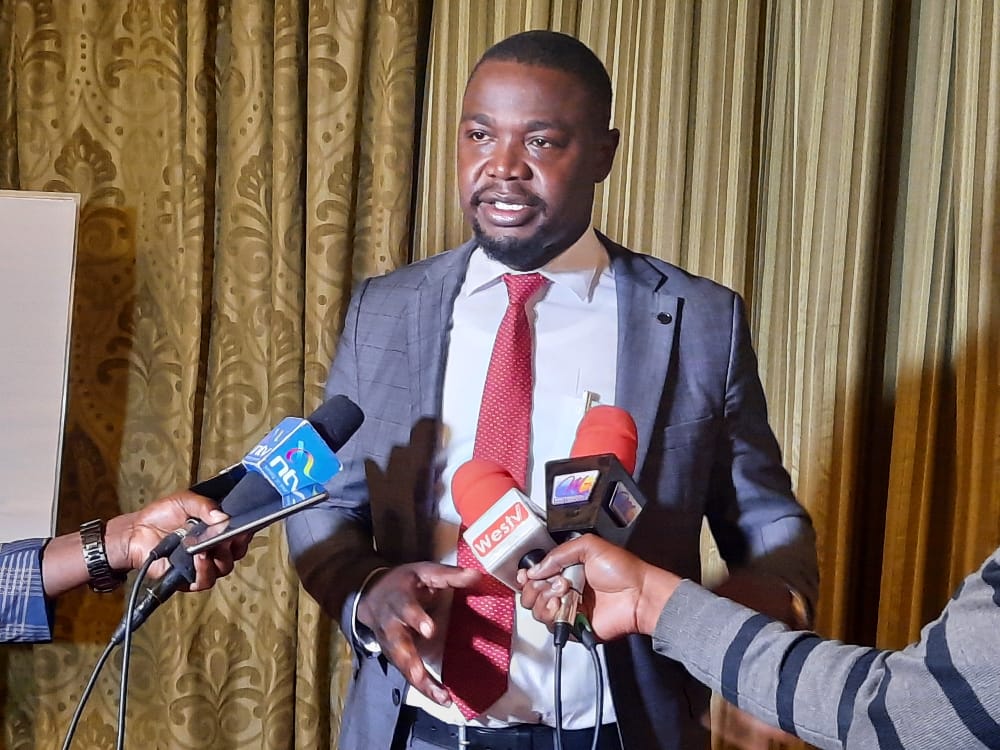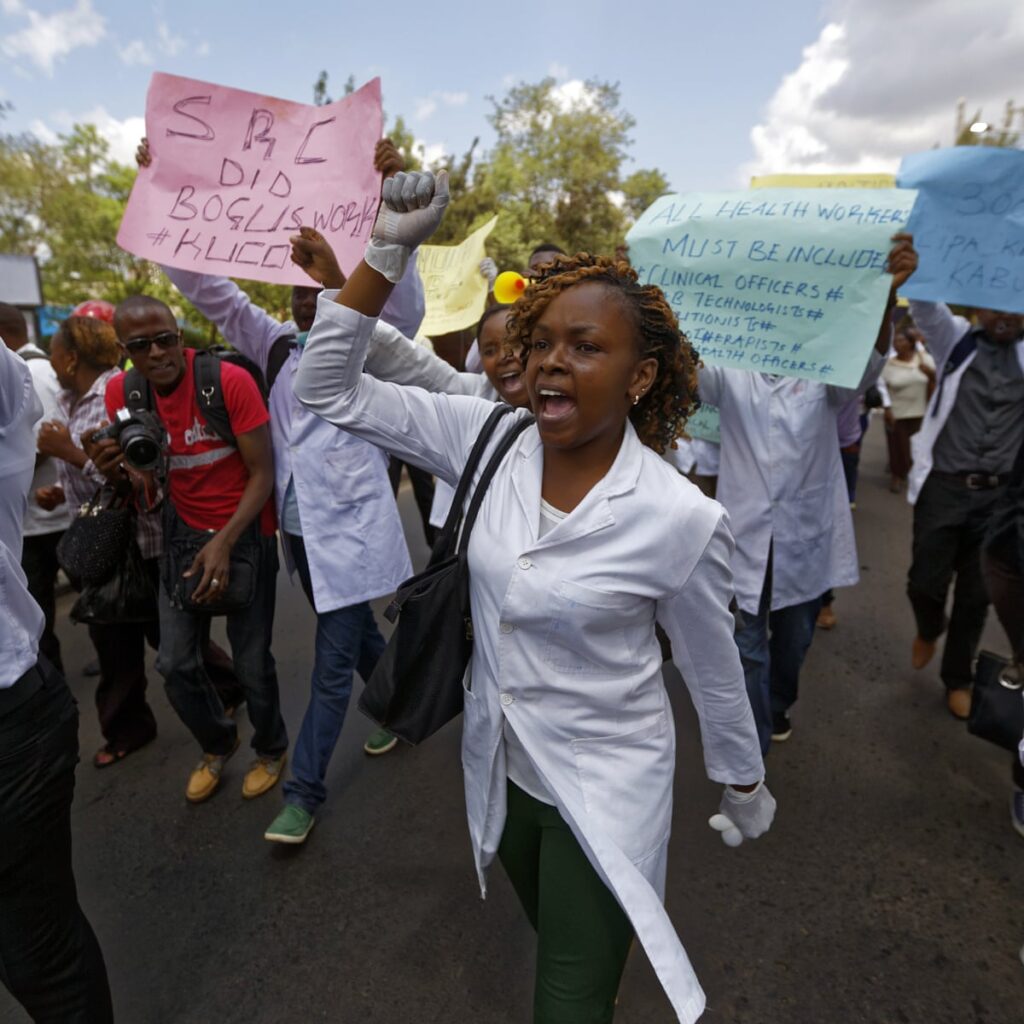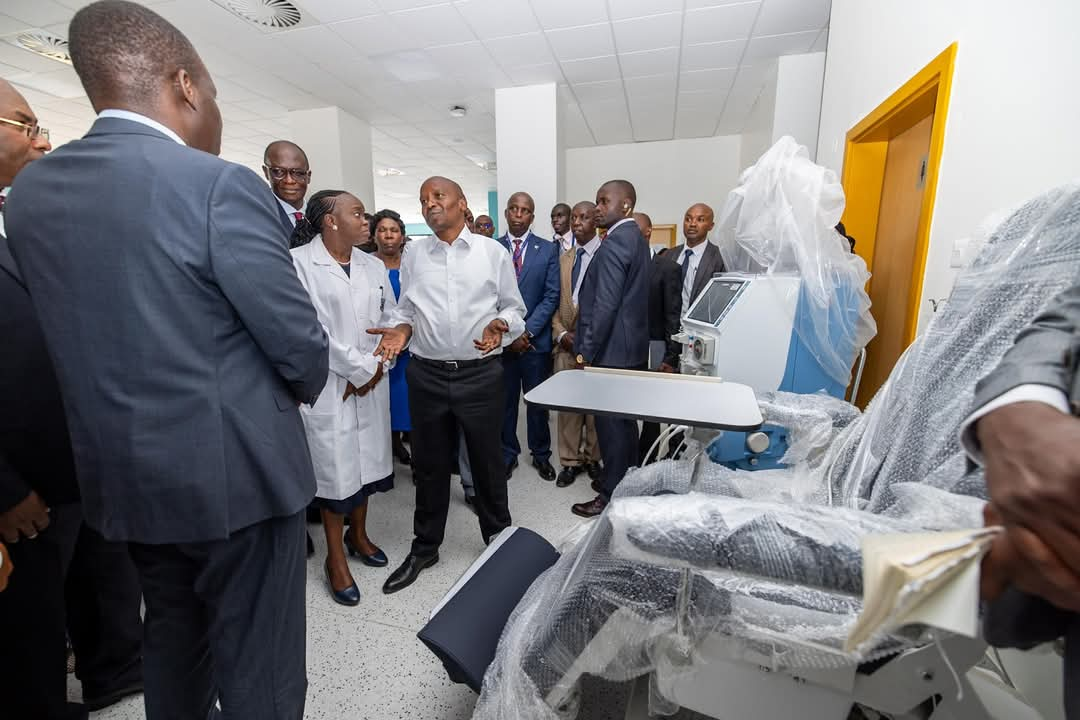How Kenya’s warped policy decisions plunged public healthcare system into deep crisis

Survey findings released today by Infotrak on the state of health care in Kenya paint a very grim picture of Kenya’s public health system that serves up to 70 percent of Kenyans.
The survey findings indicate that Kenya’s public health system is in deep crisis and unable to provide health care services to a great majority of Kenyans who depend on it.
The survey notes that this crisis that has morphed over the years is deeply embedded in policy decisions that Kenya has made over the years regarding the provision of health care services, and further compounded by failure to prioritize and adequately resource the public health care system to meet the growing health care needs of Kenyans.
In Kenya’s Vision 2030, the government’s goal is to reduce its role in the provision of health care and hand most of the functions of health care provision to the private sector. And this is where the problems of Kenya’s health Kenya system are anchored.
Health is a public good and the government has the primary responsibility for its provision to enable access by the majority poor. The privatization of the health care over the years has led to under-investment in public health system that provides the bulk of health care services and is used by 70 percent of Kenyans. This systematic underinvestment in public health care and neglect has led to the near collapse of Kenya’s public health care system, leading to a health crisis that has now been laid bare by the COVID-19 pandemic.
The influence of private actors in health has been seen largely in health policies and programs, leading to prioritization of the role of private sector in health care at the expense of the public health care.

Most of these policies have in fact disincentivized investment in public health sector, with arguments that they are inefficient and incapable of providing quality health care. The evidence of this has been seen in the focus of Universal Health Coverage (UHC) that has essentially prioritized universal “cost coverage” by emphasizing the monetary aspect of access at the exclusion of primary health care.
As a result, the focus has been on provision of health insurance for Kenyans to access health care under the universal health coverage agenda. But evidence has demonstrated over and over again that the private health care system is not able to provide affordable and quality health care to a greater majority of Kenyans.
This has been demonstrated by the number of people that sought health care services in public health facilities during the COVID-19 pandemic, with over 70 percent of Kenyan’s preferring to seek health care in public facilities citing affordability, according to the survey findings.
Even though the bulk of Kenyan’s can only seek health care in public health facilities, the demand is seldom met because of the challenge of inadequate staff to meet the needs of the many seeking health services, coupled with lack of essential health care commodities and supplies, and diagnostics and technologies necessary to diagnose and treat disease.
The consequence of this has been that people are then forced to seek services in the often expensive private health care facilities, leading them into deep financial crisis and hence creating a challenge for the poor who bear the brunt of the high cost due to the lack of any form of social protection, with NHIF not enabling them to access health care in private health facilities.
In essence, Kenya’s health system is a system that is furthering inequality where the rich can access quality health care in private health facilities while the poor don’t have access due to the collapsed public health care system and exorbitant costs charged in private health facilities.

Besides, there is the long-standing issue of transfer of money meant for health by national government to the counties, adversely impacting the delivery of health care services at the county level. The delay in transfer of finances for health care provision means that county governments do not have money to pay health care workers, purchase health commodities among others. But even more worrying is the diversion of resources meant for health to political activities at the expense of health care.
In essence, the failure of the public health system has plunged Kenya’s health system into deep crisis, adversely impacting everybody.
The majority of Kenyans are not able to access quality health care service due to the inability of the public health care system to meet their health needs.
At the same time, the over 70 percent of Kenyans who depend on the public health care services cannot afford health care in private health care facilities due to exorbitant costs. The middle class that have often been aloof when it comes to championing for accountability in the delivery of public services despite being the tax payers, have often been forced to come to the aid of their relatives and friends who cannot afford health care in private health facilities. And this manifests in the numerous “harambees” that are held through WhatsApp groups to raise billions of shillings to support payment of medical bills or funeral expenses, amounting to double taxation. Our failure to act collectively to push governments for accountability for health care has often led us to act collectively to finance funeral expenses, when these deaths could have been avoided.








